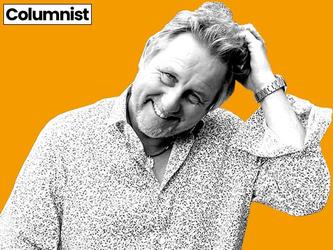Blind to the truth
Why do we sometimes remain blind to fact in an evidence-driven world?
There have always been those who wilfully fail to accept facts, in spite of all the supporting evidence – from flat Earthers to habitual smokers. However, the past few years have revealed just how much of a problem this can be when humanity is hit by crises. The climate emergency and the global pandemic have brought home how damaging it can be to society if a minority of people are blind to evidence.
Psychologists and behavioural scientists have long been exploring the cognitive and emotional mechanisms by which we are consciously or unconsciously blind to evidence in different situations.
Here, we explore findings of new scientific research around three behavioural science concepts – perceptual and attentional biases, and shifting baseline syndrome – and explain how they work to obstruct our ability to see the truth.
Biased attention and perception
We process evidence in very skewed ways, often influenced by cognitive biases such as confirmation bias, motivated reasoning, bias blind spots, and identity protective cognition.
Our brains automatically identify facts and evidence that are familiar and comfortable, and fit with existing beliefs. Information is simply much easier to absorb and digest if we already ‘sort of’ know it, than discovering and learning about new information, which takes much more cognitive energy. Even if we do carry out a more systematic review of evidence, material that supports our existing beliefs may stand out more and be more salient.
The climate emergency is a good illustration of how these biases can affect our thinking, depending on which side of the ‘argument’ we sit in terms of accepting that it is happening (or not) and the degree to which we believe it is a political and economic priority.
Researchers from the University of British Columbia recently reviewed 44 studies on attentional and perceptual biases of climate change, and found a significant partisan divide. Particularly in the US, climate change has become extremely politicised and polarised; Republicans/conservatives tend to be more sceptical of climate change, whereas Democrats/liberals tend to believe it is happening and see the need to act.
This has had many implications for how people attend to and absorb information on the issue. For example, conservatives and liberals focus on different aspects of global temperature curves – in eye-tracking experiments, liberals were more drawn to the rising section after 1990, whereas conservatives were focused on the flatter section from 1940-1980; in another experiment, liberals concerned with climate change were more likely to notice climate-related words or images.
A study published last year considered whether people might be more likely to be blind to evidence if they believed their beliefs should not change and were quite closed-minded. Gordon Pennycook and his colleagues asked people if they thought beliefs or opinions ought to change according to evidence, assessing to what extent they agreed with statements such as ‘I believe that loyalty to one’s ideals and principles is more important than “open-mindedness”’.
They found a broad spectrum of open-mindedness indicating that this could explain why some people remain closed off to new evidence. People who were more open-minded and willing to take on board new information were more likely to accept scientific evidence, and more likely to reject religious beliefs, paranormal activity and conspiracy theories.
Conspiracy theorists are particularly susceptible to perceptual bias, based around a belief that any authority – be it government, science bodies or healthcare clinicians – is not to be trusted. People who mistrust authority can be sceptical of climate change, lockdowns and vaccines, not because they are blind to it, but because they don’t believe anything leaders tell them.
One example is found among anti-vaxxers; in the US, where a large contingent of the population has not yet been vaccinated, a survey by Surgo found that as much as 17% of the population is wedded to conspiracy theories around vaccination.
At the more conscious end of the attentional spectrum, entrepreneur and writer Margaret Heffernan uses the term ‘wilful blindness’ to describe situations where we have chosen not to know, sometimes out of fear and sometimes out of a feeling of futility. She says: “We can’t notice and know everything: the cognitive limits of our brain simply won’t let us. That means we have to filter or edit what we take in. So, what we choose to let through and to leave out is crucial.”
In the context of the climate emergency, wilful blindness may be highly relevant. Faced with the prospect of needing to make dramatic changes to our lifestyles or, in the case of firms, the products and services we offer, it’s much easier to choose not to look at how urgent the situation is. We see the data we want to see, so we don’t feel the need to rush to act and find ways to cut carbon emissions.
Generational amnesia
There is new evidence showing how shifting baseline syndrome affects our perceptions. The term was coined by fisheries scientist Daniel Pauly in 1995, and is a form of generational blindness to the environmental degradation around us – from forests and grasslands, to oceans and rivers.
Each new human generation accepts the environment in which they were raised as the status quo, not realising it used to be richer and more abundant. Despite statistical evidence showing that biodiversity has fallen dramatically from what it once was, people are anchored only to what has changed during their lifetime as that feels more available and vivid.
Although now a widely accepted term among environmental campaigners, it wasn’t until last year that researchers at Royal Holloway, University of London, empirically documented shifting baseline syndrome. Their research now provides clear evidence that people, particularly younger people, severely underestimate biodiversity loss. They asked almost 200 residents, aged 19-81, in the southeast of England about 10 bird species in that region, both now and when they were 18, and found evidence of what they call ‘generational amnesia’.
The perceptions of older participants more closely matched bird population trends than the perceptions of younger participants. Younger people seemed to be less aware of how much greater bird populations were in the past, and failed to be able to imagine just how abundant bird life used to be – therefore, showing greater evidence of shifting baseline syndrome. They also found that older people were more likely than younger people to perceive a greater need for conservation action for three declining species.
Implications
- These findings might influence how we present or frame questions in research to understand what gets people’s attention, how information is perceived when it is presented in different ways, and how believable people find it.
- We may also want to explore how open-minded people are, and how willing they are to change their opinions, taking that into account when presenting them with new information.
- Putting more weight on researching and finding the best messenger for evidence is important. People are more likely to trust sources – people or news platforms – they are familiar with. In research, we can identify and explore these sources to understand how people notice new information – and believe it.
- Messengers might also be key for countering shifting baseline syndrome– drawing on older generations to communicate a personal story of the abundance of biodiversity in times past.
- These new understandings can help us to show compassion to one another, to peacefully agree to disagree, accepting that our brains are all wired differently. Even though some fact or piece of information might be blindingly obvious to one person, another might easily be oblivious to it through no conscious fault of their own.
THIS ARTICLE WAS FIRST PUBLISHED IN THE January 2022 ISSUE OF IMPACT.

We hope you enjoyed this article.
Research Live is published by MRS.
The Market Research Society (MRS) exists to promote and protect the research sector, showcasing how research delivers impact for businesses and government.
Members of MRS enjoy many benefits including tailoured policy guidance, discounts on training and conferences, and access to member-only content.
For example, there's an archive of winning case studies from over a decade of MRS Awards.
Find out more about the benefits of joining MRS here.














0 Comments